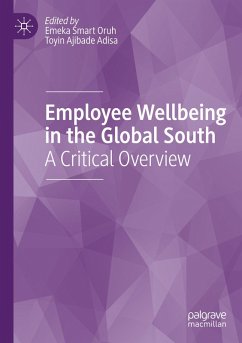
Managing Human Resources in Africa
A Critical Approach
Herausgegeben: Mordi, Chima; Ajonbadi, Hakeem Adeniyi; Adekoya, Olatunji David; Adisa, Toyin Ajibade

PAYBACK Punkte
68 °P sammeln!
Over the decades, academic literature has too often neglected the complexities and diversity of the African continent and the challenges faced by both multinational companies working across Africa and domestic African companies, particularly in the field of human resources. This edited collection has been compiled with the aim of developing our understanding and practice of HRM in an African context within an increasingly global work milieu.Chapters focus on different African countries and are underpinned by a critical approach to HRM, which goes beyond focussing on the business cases but cons...
Over the decades, academic literature has too often neglected the complexities and diversity of the African continent and the challenges faced by both multinational companies working across Africa and domestic African companies, particularly in the field of human resources. This edited collection has been compiled with the aim of developing our understanding and practice of HRM in an African context within an increasingly global work milieu.
Chapters focus on different African countries and are underpinned by a critical approach to HRM, which goes beyond focussing on the business cases but considers the sensitivity of the national context. The authors will draw on various types of research (conceptual, theoretical and empirical) and incorporate contextual issues such as technology, politics, culture, and economics to supplement the readers' insights into the current state of human resource management in African countries. By highlighting theoretical underpinnings and emphasising the practical relevance of HR issues, this proposed book will offer an insightful guide for students and scholars interested in HR and management in developing economies.
Chapters focus on different African countries and are underpinned by a critical approach to HRM, which goes beyond focussing on the business cases but considers the sensitivity of the national context. The authors will draw on various types of research (conceptual, theoretical and empirical) and incorporate contextual issues such as technology, politics, culture, and economics to supplement the readers' insights into the current state of human resource management in African countries. By highlighting theoretical underpinnings and emphasising the practical relevance of HR issues, this proposed book will offer an insightful guide for students and scholars interested in HR and management in developing economies.














